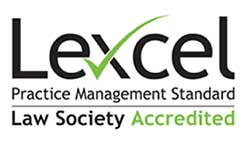In recent years, the UK Government has sought to make it easier for commercial buildings to be converted for residential use. Converting a commercial property to a residential one can offer substantial returns for developers, with commercial premises often being available for considerably lower sums than residential properties in the same areas.
A profitable commercial to residential conversion requires significant preparation including due diligence on the property itself. The Commercial Conveyancing Solicitors at Wilford Smith have many years of experience acting on behalf of developers in regards to prospective commercial to residential property conversions, and can provide you with clear, straightforward and jargon-free advice throughout this process. By seeking our expert legal advice at the earliest stage you will put yourself in the strongest possible position to ensure a smooth and successful property transition. If you are planning a commercial to residential property conversion, call us today to find out how we can help.
What does the law say about converting commercial property for residential use?
In 2013, the Town and Country Planning (General Permitted Development) (Amendment) (England) Order introduced the “Class J” development, which removed restrictions on converting commercial premises for residential use. This meant that buildings that were previously being used as offices could be converted for use as a dwelling house, without the need for a full planning application.
While this has made such conversions more straightforward, there are a number of considerations that are vital before development can proceed. The building must have been used as office space immediately prior to 2013, must not be a Grade 1 or 2 listed building and must not be part of a safety hazard area. Developers should be aware that some types of offices are exempt from Class J status, including premises that have previously been used for other purposes.
What other factors are important when considering a commercial to residential property conversion?
In addition to the status of the building itself, a key consideration when planning a commercial to residential property conversion is access. With many commercial buildings being located in the centre of towns and cities, access can in some cases pose an obstacle to a development getting off the ground. If such problems exist, for example if the premises is located on a pedestrianised thoroughfare, the local authority may wish to challenge plans on this basis.
Even if a property comes within Class J, developers may still encounter problems if the conversion requires changes to be made to the design or layout of the building. The requirement for such a conversion will in many cases result in an application for planning permission being required before the development can take place.
Those contemplating a commercial to residential conversion should also be aware of the need to remove dangerous or hazardous material from the site as part of their development. Many commercial premises built in the 1960s and 70s contain asbestos, which was subsequently found to be highly dangerous. Removal of asbestos is highly regulated, requiring control and care. This process can be extremely costly and must be factored into the cost of the conversion.
Restrictive covenants, placing restrictions on how property can be used, can also impact upon a commercial to residential property conversion. It may be the case that a property can only be used for commercial purposes because the existence of other covenants may make residential conversion impractical.
Contact our Commercial Conveyancing Lawyers in Sheffield
To ensure the viability of your commercial to residential property conversion it is essential to get legal advice at the outset of any development to ensure the viability of your project. With years of commercial conveyancing experience, the solicitors at Wilford Smith will carry out investigations on your behalf, including local authority searches, drainage and water searches. Environmental searches will be used to identify any environmental contamination where the property, or the land on which it is built, has previously been used for commercial purposes. Our team will carry out an inspection of the property’s title deeds to reveal whether any restrictive covenants exist, and can advise you appropriately on these if necessary.
Our commercial conveyancing department are based in Sheffield and advise clients throughout England and Wales. Contact us today on 0808 164 1028 to find out how we can help.



